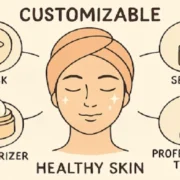Key Takeaways
- Understand the different types of senior care options available.
- Identify the important factors to consider when choosing senior care.
- Explore the benefits and drawbacks of each senior care option.
- Utilize helpful external resources to make an informed decision.
Understanding the Different Types of Senior Care
When it comes to senior care, there are various options available to cater to the unique needs of your loved ones. From assisted living facilities to home care services, understanding these options is crucial in making the right decision. Each type of senior care offers its own set of benefits and challenges. One of the best ways to start familiarizing yourself with these options is by exploring comprehensive resources like Senior Care Options.
While assisted living facilities offer a community-like environment with various amenities, home care services allow seniors to receive personalized care within their own homes. Balancing these choices involves understanding the specific needs and preferences of your elderly family members. Some seniors may require constant medical care, while others may need assistance with daily activities or simply desire more social interaction.
Factors to Consider When Choosing Senior Care
Choosing the right senior care option involves considering several factors. These include the level of medical care required, the individual’s level of independence, and their personal preferences. Additionally, financial considerations play a significant role in the decision-making process. Evaluating these factors thoroughly can help ensure that the chosen care option meets your loved one’s needs and enhances their quality of life.
Medical Care Requirements
The medical needs of seniors can vary widely. Some may need round-the-clock medical supervision due to chronic illnesses or complex health conditions, while others might only need minimal assistance with medication management or occasional medical check-ups. Assessing the level of medical care required can help narrow down the best care option. This step is crucial because it also impacts the type and cost of care services needed.
Independence and Personal Preferences
The level of independence your loved one can maintain is another critical factor. Some seniors thrive in settings where they can socialize and partake in community activities, whereas others may prefer the privacy and comfort of their own homes. Understanding your loved one’s personality, hobbies, and social needs can guide you in choosing the most suitable environment for them. Ensuring their comfort and happiness is paramount to their overall well-being.
Financial Considerations
Evaluating the costs associated with each type of care and determining what fits within your budget is crucial. Websites like AARP’s financial advice provide valuable insights into managing these expenses effectively. It’s important to consider not just the immediate costs, but also long-term financial sustainability. Financial planning can include exploring insurance options, government assistance programs, and potential family contributions. Being well-informed and prepared financially ensures that there are no unexpected financial strains.
Benefits of Assisted Living Facilities
Assisted living facilities provide a community environment where seniors can receive assistance with daily activities while maintaining a level of independence. These facilities offer numerous amenities and social activities that can enhance the quality of life for seniors. Services often include meal preparation, housekeeping, transportation, and recreational activities, all within a secure and supportive environment.
Residents often enjoy community dining, group exercise classes, and cultural activities. Such environments can be particularly beneficial for seniors who may feel isolated living alone. In addition, having trained staff available around the clock provides peace of mind for both the seniors and their families. These facilities also often include healthcare services, making it easier for residents to get the medical attention they need without leaving the community.
Home Care Services for Seniors
Senior citizens can get individualized care in the comfort of their own homes thanks to home care services. This option is ideal for those who prefer to stay in a familiar environment and maintain their daily routines. Home care services can range from medical care to assistance with household tasks. This flexibility allows for a tailored approach to each individual’s needs, promoting comfort and familiarity.
Personalized care can include anything from help with meal preparation and housekeeping to more intensive medical care, depending on the needs of the senior. This option provides a tailored approach, ensuring the senior’s comfort and well-being. Additionally, home care services can be adjusted as the senior’s needs change over time, offering a versatile solution that adapts to their evolving health and personal requirements. The personal nature of home care also means that caregivers can form close bonds with the senior, providing both emotional support and practical assistance.
Making the Financial Decision
Financial considerations are crucial when choosing a senior care option. It is important to evaluate the costs associated with each type of care and determine what fits within your budget. Utilizing resources can help you manage these expenses effectively. Taking the time to research and plan for the long-term financial aspects of senior care can prevent unexpected costs from becoming a burden.
It’s essential to consider not only the direct costs of care services but also any additional expenses that may arise, such as transportation, medical supplies, and other miscellaneous costs. Preparing a detailed budget can provide a clearer picture of the financial implications of each care option. Financial planning might also involve looking into insurance policies, exploring government assistance programs, and possibly consulting a financial advisor to ensure that all potential financial aid avenues are explored.
Utilizing External Resources for Informed Decisions
To make an informed decision, it is beneficial to use external resources that offer expert advice. The Healthline Senior Health section is an excellent resource for understanding the health implications of different senior care options and helps in choosing the one that best fits your needs. Healthline provides insights into various senior health topics, from common medical conditions to wellness tips, enhancing your knowledge and ability to make well-rounded care decisions.
These resources provide comprehensive information on various senior health topics, enabling caregivers to make well-informed decisions. Additionally, they often include tips and tools for managing senior care more effectively, contributing to a smoother decision-making process. Taking advantage of such resources ensures that you can provide the best possible care for your loved ones based on up-to-date and expert knowledge.
Caring Touch Home Health Makes a Difference in Patients’ Lives










Comments